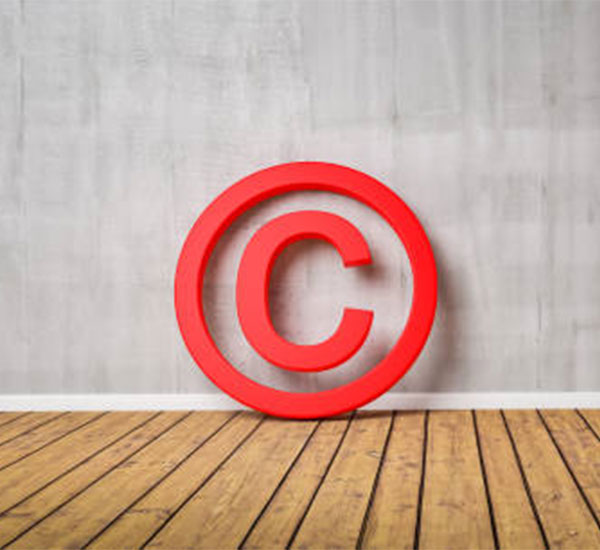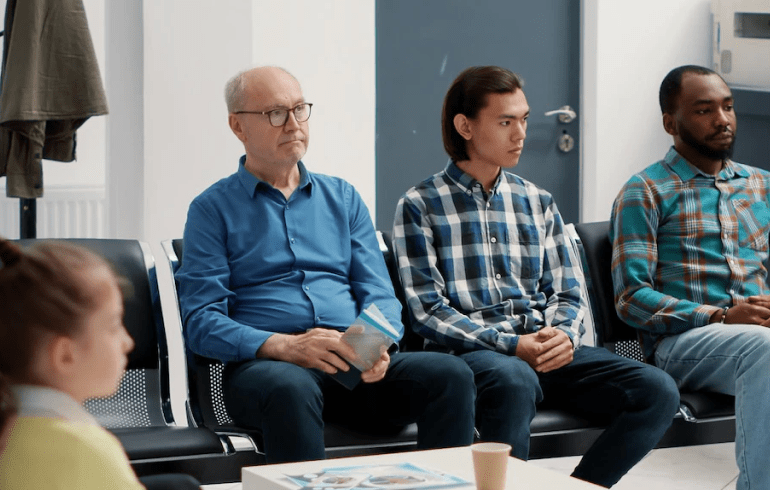
What We Offer
Key Features For Our Copyright Registration
Copyright is the term used to describe the ownership rights to works of art, music, literature,
theater, and sound recordings. A collection of rights, including those for reproduction, public
communication, adaptation, and translation, are granted to the work upon copyright registration. The
protection and encouragement of writers' ownership and enjoyment rights through copyright
registration promotes and rewards innovation. You must register your copyrights in order to
communicate with the public, reproduce the works, alter them, and translate them.
The quantity of intellectual property being registered in India has significantly increased as
awareness of intellectual property laws has expanded. Copyright registration is one of the most
significant forms of intellectual property protection.
The registration of copyrights is governed by the Copyright Act of 1957. No one is allowed to
utilize the author's creative work without their permission, thus it cannot be duplicated. The right
to charge for the use or modification of an author's work exists. Typically, the copyright is
shielded for 60 years.
Advantages of Copyright Registration are:
Table Of Contents
Know Everything About Copyright Registraion

Company Registration Process
Copyright Registration in India – Secure Your Creative Rights with Madaliya
In today’s digital age, protecting your original content is more important than ever. Whether you're a writer, artist, musician, filmmaker, software developer, or designer, copyright registration in India offers legal protection and ownership of your creative work. At Madaliya, we make the copyright registration process simple, affordable, and fully online.
Our expert team ensures a smooth and hassle-free experience for online copyright registration, giving you peace of mind and complete control over your intellectual property. By registering your work, you get the exclusive right to reproduce, distribute, and license it—while preventing others from copying or using it without permission.
Simple and Secure Online Copyright Registration
With Madaliya, the process of copyright registration becomes fast and efficient. We handle everything from documentation to submission, allowing you to focus on your creativity while we take care of the legalities. Our platform is designed to offer easy access to copyright registration online, no matter where you are in India.
We work closely with clients from across the country, providing timely updates and legal support at every stage. Whether it’s a manuscript, music album, software code, video content, or artwork, our team ensures it is legally protected under the Copyright Act, 1957.
Why Choose Madaliya for Copyright Registration?
-
Expert Legal Guidance
-
Affordable Pricing with No Hidden Charges
-
Fast and Reliable Online Process
-
Nationwide Service Across India
Don't let your creativity go unprotected. Choose Madaliya for reliable and professional online copyright registration. Secure your work today and build your brand with confidence.
Eligibility
Copyright registration can be obtained for any works related to literature, drama, music, artwork, film, or sound recording. Copyrights are given to mainly three classes of work, and each class has its distinctive right under the copyright act.
- Original literary, dramatic, musical, and artistic works comprise the copyright for books, music, painting, sculpture, etc.
- Cinematography films are another class of copyright that consists of any work of visual recording on any medium.
- Sound recordings have a distinctive class under the copyright act that consists of a recording of sounds, regardless of the medium on which such recording is made or the method by which the sound is produced.
Rights of Copyright Owners
Before addressing the remedies for infringement, it is critical to comprehend the rights that a copyright owner holds. Owners of valid copyrights are entitled to:
- Publicly display the work that has been published
- Create the piece in a tangible medium
- Any translation of the work should not be created, replicated, performed, or published
- Create any necessary adaptations and distribute the content via broadcast, radio, or cable
The first author of the work has the following exclusive rights:
- Duplicate the work
- Create a derivative using the source material
- Publicly perform the work after it has been distributed
- Showcase the artwork in a professional context
- Seek redress if a work's copyright is being used without permission.
Apart from this the following rights belong to a copyright owner, and only they have the authority to transfer them to another party:
- No one may duplicate or reproduce a work that is protected by copyright in india, in whole or in part, without the owner's permission
- The creator has the sole right to adapt and use their work however they see fit (e.g., a book into a movie)
- Public communication rights: The sole right to broadcast their original works to the general public
- Owners of artistic and musical works have the sole right to public performances of their creations
- The right of attribution or paternity suggests that the owner or creator may assert sole authorship over their creative production. In other words, they can claim responsibility for it
- The owner has the legal right to sue if their creation is misrepresented or altered without their permission
- Right of distribution: The sole right to make their work available in any format they choose (through selling, reproducing, leasing, lending, renting, or transferring).
Process for Copyright Registration
Copyright registration applications can be submitted on Form IV along with the required fees. It can be copyrighted whether it is a published or unpublished work. Three copies of published material must be supplied with the application for published work.
For unpublished work, a copy of the manuscript must be supplied with the application for affixing the copyright office's stamp, which serves as proof that the work has been registered.
The process for Copyright Registration:
- The application for copyright registration has to be filed in the concerned forms that mention the particular's work.
- Depending on the type of the work, a separate copyright application may have to be filed.
- The applicant needs to sign the forms, and the Advocate must submit the application under the name the POA has been executed.
- Meanwhile, our experts will prepare the copyright registration application and submit the necessary forms with the Registrar of copyrights.
- The diary number will be issued once the application is submitted online.
- Within the waiting period of 30 days, the copyright examiner reviews the application for potential objection or any other discrepancies.
- If there is an objection, a notice will be issued, and the same has to be compiled within 30 days from the date of issuance of the notice. The examiner may call both parties for a hearing.
- After the discrepancy has been removed or no objection, the copyright is registered, and the Copyright Office will issue the registration certificate.
Documents Required for Copyright Registration in India
Documents required for copyright registration in india is listed below
Personal details:
- Name, address, and nationality of the applicant
- Name, address, and nationality of the author of the work
- Nature of the applicant’s interest in the copyright - whether the applicant is the author of the work or the representative of the author
- Copies of the original work
- ID proof of the owner and incorporation certificate if it is for business
Nature of the work:
- Class & description of the work
- Title of the work
- Language of the work
- Date of publication - publication in internal magazines, like a company magazine or a research paper submitted to a professor does not count as publication.
Documents:
- Three copies of your work
- Authorisation letter (we will send you)
What are the Penalties Applicable for Copyright Infringement?
- In the case of Copyright InfringementThe minimum punishment is imprisonment for 6 months with the minimum fine of Rs. 50,000/-.
- In the case of a Second and Subsequent ConvictionThe minimum punishment is imprisonment for 1 year and a fine of Rs. 1 lakh.
What are the Rights of Copyright Owner?
The Indian Copyright Act 1957 protects the economic, legal, and social interests of the copyright owner. The Act communicates the exclusive rights on owner in the following regards:-
- Right of Reproduction
- Right of Adaptation
- Right of Communication to the Public.
- Right of Public Performance
- Right of Paternity and Integrity
- Right of Distribution
What is the Validity Period for Copyright Registration?
- In case of Published WorksThe duration of the copyright artistic works is valid up to the life of the artist + 70 years.
- In the case of Unpublished WorksCopyright lasts until the work is first published to a span of the life of the artist + 70 years.
Note: - As per the changes made *From 1 January 2019, the duration of copyrighted art is the same for both published and unpublished works.
Benefits of Copyright Registration In India
A public record of ownership
When a work is copyrighted, it is registered on a public record, thereby establishing ownership.
Copyright infringement
In the case of copyright infringement, the authors can sue infringers to secure their work and claim statutory compensation.
Prevents importing of duplicates
The owners can record the copyright registration with the Indian customs and prevent importing duplicate copies of the work.
Commercial use of by-products
Have control over by-products or derivatives created from the original registered work for commercial purposes.
Transfer of copyright
The rights can be passed or sold to a third party by the original copyright holder.
Ensures protection
Copyright registration enables the owners to exhibit their work without the fear that it will be replicated without authorisation.

Find Your Answers About Copyright Registraion
Fill The Form to Get Started
Fill The Form to Avail Our Services








